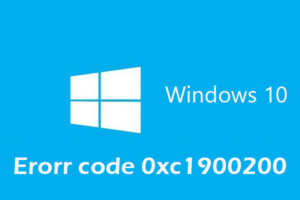-
Table of Contents
Top 10 ways to speed up Windows 11.
Introduction:
Windows 11 is the latest operating system from Microsoft, offering a range of new features and improvements. However, like any operating system, it can sometimes slow down over time, affecting your productivity and overall user experience. To ensure optimal performance, it’s essential to know how to speed up Windows 11. In this article, we will explore the top 10 ways to boost the speed of your Windows 11 system, allowing you to enjoy a smooth and efficient computing experience.
Optimizing Startup Programs to Improve Windows 11 Performance
Optimizing Startup Programs to Improve Windows 11 Performance
When it comes to speeding up your Windows 11 system, one area that often gets overlooked is the optimization of startup programs. These are the applications and processes that automatically launch when you start your computer. While some of these programs are necessary for your system to function properly, others can be unnecessary and can significantly slow down your computer’s startup time. In this article, we will explore the top 10 ways to optimize your startup programs and improve the overall performance of your Windows 11 system.
1. Identify and Remove Unnecessary Startup Programs
The first step in optimizing your startup programs is to identify and remove any unnecessary ones. To do this, open the Task Manager by pressing Ctrl + Shift + Esc and navigate to the Startup tab. Here, you will find a list of all the programs that launch at startup. Disable any programs that you don’t need by right-clicking on them and selecting Disable.
2. Prioritize Essential Programs
While removing unnecessary startup programs is important, it’s equally important to prioritize the essential ones. Identify the programs that you use regularly and need to launch quickly, such as antivirus software or productivity tools. Enable these programs in the Task Manager’s Startup tab to ensure they launch promptly when you start your computer.
3. Delay Non-Essential Programs
For programs that you don’t need to launch immediately, consider delaying their startup. This can be done using the built-in Windows 11 feature called “Startup Apps” in the Settings menu. Simply navigate to Settings > Apps > Startup and toggle off the programs that you want to delay. This way, your computer can focus on launching the essential programs first, improving overall startup speed.
4. Use Third-Party Startup Managers
If you find the built-in Windows 11 tools insufficient, you can explore third-party startup managers. These tools provide more advanced features and customization options for managing your startup programs. Some popular options include CCleaner, Autoruns, and Startup Delayer. These tools allow you to have more control over which programs launch at startup and can help optimize your system’s performance.
5. Update and Optimize Drivers
Outdated or incompatible drivers can also impact your computer’s startup time. Ensure that all your drivers are up to date by visiting the manufacturer’s website or using driver update software. Additionally, consider optimizing your drivers by disabling unnecessary features or settings that may be causing performance issues.
6. Clean Up Your System
A cluttered system can slow down your computer’s startup time. Regularly clean up your system by removing temporary files, clearing browser caches, and uninstalling unused programs. This will not only free up storage space but also improve the overall performance of your Windows 11 system.
7. Disable Resource-Intensive Startup Programs
Some programs, especially those that run in the background, can consume a significant amount of system resources and slow down your computer’s startup. Identify these resource-intensive programs and consider disabling them from launching at startup. This can be done through the Task Manager or the program’s own settings.
8. Optimize Startup Services
In addition to programs, Windows 11 also launches various services at startup. Some of these services may not be necessary for your system’s performance and can be disabled. To manage startup services, open the Task Manager, navigate to the Services tab, and click on “Open Services” at the bottom. Here, you can disable or set services to manual startup, reducing the load on your system during startup.
9. Enable Fast Startup
Windows 11 offers a feature called Fast Startup, which combines elements of a traditional shutdown and hibernation. Enabling this feature can significantly reduce your computer’s startup time. To enable Fast Startup, go to Control Panel > Power Options > Choose what the power buttons do, and check the “Turn on fast startup” option.
10. Regularly Monitor and Adjust
Optimizing your startup programs is not a one-time task. It’s important to regularly monitor your system’s startup performance and make adjustments as needed. Keep an eye on the Task Manager’s Startup tab and disable or enable programs based on their impact on startup time.
By following these top 10 ways to optimize your startup programs, you can significantly improve the performance of your Windows 11 system. Remember to regularly clean up your system, prioritize essential programs, and make use of third-party tools if necessary. With a streamlined startup process, you’ll experience faster boot times and a more efficient computing experience overall.
Clearing Temporary Files and Junk to Boost Windows 11 Speed
Windows 11 is the latest operating system from Microsoft, offering a range of new features and improvements. However, like any operating system, it can sometimes slow down over time, affecting your productivity and overall user experience. Fortunately, there are several ways to speed up Windows 11 and ensure it runs smoothly. One effective method is clearing temporary files and junk that accumulate on your system.
Temporary files and junk can accumulate on your computer over time, taking up valuable storage space and slowing down your system. These files include temporary internet files, system cache, and other unnecessary data that Windows generates during regular usage. By clearing these files, you can free up storage space and improve the overall performance of your computer.
One way to clear temporary files and junk is by using the built-in Disk Cleanup utility in Windows 11. To access this utility, simply search for “Disk Cleanup” in the Start menu and open the application. Once opened, select the drive you want to clean up, usually the C: drive, and click on the “OK” button. The utility will then scan your drive for temporary files and junk that can be safely deleted. After the scan is complete, you can review the files and select the ones you want to delete. Click on the “OK” button to confirm your selection and free up storage space.
Another method to clear temporary files and junk is by using third-party software. There are several reliable software options available that can scan your system for unnecessary files and delete them. CCleaner is one such popular software that offers a range of cleaning tools to optimize your system’s performance. Simply download and install the software, run a scan, and let it clean up your system. Remember to always download software from trusted sources to avoid any potential security risks.
In addition to clearing temporary files and junk, it is also important to regularly clean up your browser’s cache and history. Browsers like Google Chrome and Mozilla Firefox store temporary files, cookies, and browsing history, which can accumulate over time and slow down your browsing experience. To clear these files, open your browser’s settings and navigate to the privacy or history section. From there, you can clear your browsing data, including cache, cookies, and history. It is recommended to perform this cleanup regularly to ensure optimal browsing speed.
Clearing temporary files and junk is a simple yet effective way to boost the speed of your Windows 11 system. By regularly cleaning up these files, you can free up storage space, improve system performance, and enhance your overall user experience. Whether you choose to use the built-in Disk Cleanup utility or third-party software, taking the time to clear temporary files and junk is a worthwhile investment in maintaining a fast and efficient Windows 11 system. So, don’t let unnecessary files slow you down – take action today and enjoy a faster, smoother Windows 11 experience.
Enhancing Windows 11 Performance with Regular Disk Cleanup
Windows 11 is the latest operating system from Microsoft, offering a range of new features and improvements. However, like any operating system, it can sometimes slow down over time, affecting your productivity and overall user experience. To ensure optimal performance, it is essential to regularly clean up your disk and remove unnecessary files. In this article, we will explore the top 10 ways to enhance Windows 11 performance with regular disk cleanup.
1. Disk Cleanup Utility: Windows 11 comes with a built-in Disk Cleanup utility that allows you to remove temporary files, system files, and other unnecessary data. To access this utility, simply search for “Disk Cleanup” in the Start menu and run the application.
2. Temporary Files: Over time, temporary files can accumulate on your system, taking up valuable disk space. Disk Cleanup can help you identify and remove these files, freeing up storage and improving performance.
3. System Files: Windows updates and installations can leave behind system files that are no longer needed. Running Disk Cleanup can help you identify and remove these files, reducing clutter and optimizing system performance.
4. Recycle Bin: The Recycle Bin is a temporary storage location for deleted files. However, these files still take up disk space until they are permanently deleted. Regularly emptying the Recycle Bin can help free up storage and improve system performance.
5. Downloads Folder: The Downloads folder is often a repository for files that are no longer needed. Sorting through this folder and deleting unnecessary files can help free up disk space and enhance system performance.
6. Uninstall Unused Programs: Over time, you may accumulate a collection of programs that you no longer use. These programs can take up valuable disk space and may even run background processes that consume system resources. Uninstalling unused programs can help optimize system performance.
7. Clear Browser Cache: Web browsers store temporary files, cookies, and other data to improve browsing speed. However, over time, this cache can become bloated and slow down your browsing experience. Clearing your browser cache regularly can help improve overall system performance.
8. Delete Duplicate Files: Duplicate files can accumulate on your system, taking up unnecessary disk space. There are various third-party tools available that can help you identify and remove duplicate files, freeing up storage and enhancing system performance.
9. Defragment Your Hard Drive: Over time, files on your hard drive can become fragmented, leading to slower read and write speeds. Running the built-in Disk Defragmenter utility can help optimize file placement and improve overall system performance.
10. Regular Maintenance: Performing regular disk cleanup and maintenance tasks can help keep your system running smoothly. Set a schedule to perform these tasks at regular intervals, ensuring that your system remains optimized and efficient.
In conclusion, regular disk cleanup is essential for enhancing Windows 11 performance. By utilizing the built-in Disk Cleanup utility, removing temporary files, uninstalling unused programs, clearing browser cache, deleting duplicate files, and performing regular maintenance tasks, you can optimize your system’s performance and enjoy a seamless user experience. Remember to set a schedule for these tasks to ensure that your system remains optimized and efficient in the long run.
Maximizing Windows 11 Speed through System Maintenance and Updates
Windows 11 is the latest operating system from Microsoft, offering a range of new features and improvements over its predecessor. However, like any operating system, it can sometimes slow down over time, affecting your productivity and overall user experience. In this article, we will explore the top 10 ways to speed up Windows 11 through system maintenance and updates.
1. Regularly update Windows 11: Microsoft frequently releases updates to address bugs, security vulnerabilities, and performance issues. By keeping your operating system up to date, you ensure that you have the latest optimizations and improvements.
2. Optimize startup programs: Over time, your computer may accumulate a list of programs that automatically start when you boot up your system. This can significantly slow down your startup time. To optimize this, open the Task Manager, go to the Startup tab, and disable unnecessary programs from starting up.
3. Clean up your hard drive: A cluttered hard drive can slow down your system. Use the built-in Disk Cleanup tool to remove temporary files, system files, and other unnecessary data. Additionally, consider using a third-party disk cleaning software for a more thorough cleanup.
4. Defragment your hard drive: Fragmented files can slow down your computer’s performance. Use the built-in Disk Defragmenter tool to rearrange fragmented files, improving access times and overall system speed.
5. Manage your virtual memory: Virtual memory, also known as the page file, is a portion of your hard drive that Windows uses as additional RAM. By default, Windows manages this automatically, but you can optimize it for better performance. Go to the System Properties, click on the Advanced tab, and under Performance, click on Settings. In the Performance Options window, go to the Advanced tab and click on Change under Virtual Memory. Here, you can adjust the size of the page file manually.
6. Disable visual effects: Windows 11 comes with various visual effects that enhance the user interface but can also consume system resources. Disabling or reducing these effects can improve overall system performance. To do this, right-click on the Start button, go to System, click on Advanced system settings, and under Performance, click on Settings. In the Performance Options window, select the Adjust for best performance option or manually disable specific effects.
7. Uninstall unnecessary programs: Over time, you may accumulate a list of programs that you no longer use. These programs take up valuable system resources and can slow down your computer. Go to the Control Panel, click on Programs, and then on Programs and Features. Here, you can uninstall any unnecessary programs.
8. Disable unnecessary startup services: Similar to startup programs, certain services may start automatically with Windows, consuming system resources. To manage these services, open the Task Manager, go to the Services tab, and disable any services that you don’t need.
9. Scan for malware and viruses: Malware and viruses can significantly impact your system’s performance. Use a reliable antivirus software to scan your computer regularly and remove any threats. Additionally, consider using anti-malware software for added protection.
10. Upgrade your hardware: If your computer is still slow after following the above steps, it may be time to consider upgrading your hardware. Adding more RAM, upgrading your hard drive to a solid-state drive (SSD), or replacing an outdated processor can greatly improve system performance.
By following these top 10 ways to speed up Windows 11 through system maintenance and updates, you can ensure that your computer runs smoothly and efficiently. Remember to regularly perform these maintenance tasks to keep your system optimized and enjoy a faster Windows 11 experience.
Q&A
1. Disable startup programs: Open Task Manager, go to the Startup tab, and disable unnecessary programs from starting up with Windows.
2. Optimize power settings: Adjust your power plan to prioritize performance over energy saving.
3. Clean up disk space: Use the built-in Disk Cleanup tool to remove temporary files, old downloads, and other unnecessary data.
4. Update drivers: Ensure that all your device drivers are up to date to improve system performance.In conclusion, there are several effective ways to speed up Windows 11. These include optimizing startup programs, disabling unnecessary visual effects, cleaning up disk space, updating drivers, running regular system maintenance tasks, disabling background apps, adjusting power settings, using a solid-state drive (SSD), increasing virtual memory, and performing a clean installation of Windows 11 if necessary. By implementing these strategies, users can significantly improve the performance and speed of their Windows 11 operating system.







![[Solved]: “Error Code 0xC004F050” in Windows 11 in No Time](https://www.tipsbin.net/wp-content/uploads/2023/08/8e64f519d2390bfc001a41744be2cbd4-300x199.jpeg)

